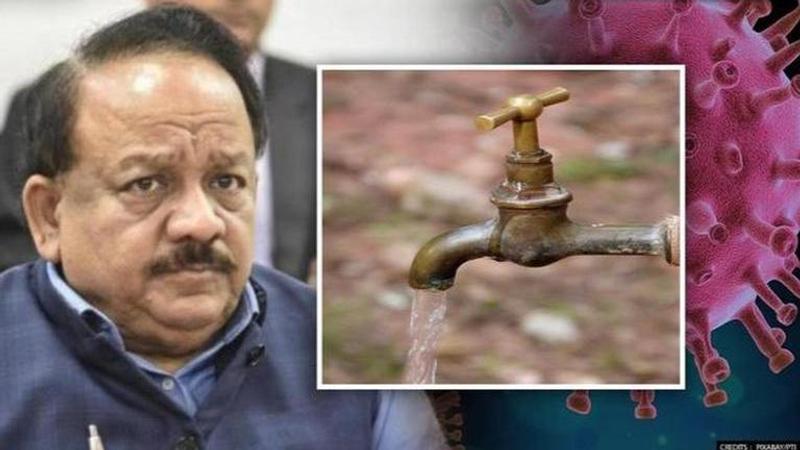Published 20:29 IST, May 7th 2021
Does COVID spread through water? Healthy Min dispels mystery over virus being waterborne
While addressing a press conference, Health Ministry official dismissed the possibility of COVID-19 spreading through water.

The Union Health Ministry on Friday dismissed the possibility of COVID-19 spreading through water. This development assumes significance as World Health Organisation has not only mentioned the possibility of an airborne transmission, but also specified that it could be transmitted via aerosols, which are minute solid or liquid droplets transmitted through the air.
While addressing a press conference, the Health Ministry official said, "Virus mainly spreads through the air at times when people are standing close and droplets released that would also lead to the spread but the COVID virus doesn't spread via water as the virus gets diluted in water."
'Can avoid third wave...'
As India is struggling to deal with the deadly second wave of COVID-19, the Ministry of Health & Family Welfare on Friday said that the third wave of the pandemic can be avoided. Principal Scientific Advisor to Centre Professor K VijayRaghavan asserted that if citizens take strong measures, the third wave may not happen in all places or anywhere at all. This will totally depend on how seriously COVID appropriate behaviour is being followed at the local level.
If we take strong measures, the third wave may not happen in all places or indeed anywhere at all. It depends much on how effectively the guidance is implemented at the local level, in the states, in districts & the cities everywhere," said the Principal Scientific Advisor.
COVID-19 airborne
WHO had last year acknowledged that coronavirus disease was airborne, but dismissed the demands to include it into its guidelines citing lack of evidence. However, the global organisation in its latest update mentioned the possibility of airborne transmission and through aerosols.
WHO pointed out that the SARS-CoV-2 virus spreads mainly between people “who are in close contact” with each other, typically within a range of 1 meter. Furthermore, it said that a person “can be infected when aerosols or droplets containing the virus are inhaled or come directly into contact with the eyes, nose, or mouth”. Asserting that aerosols could remain suspended in the air for longer durations, it said that the coronavirus was likely to spread in crowded and non-ventilated rooms.
COVID-19 in India
Asserting the inevitability of the third wave of COVID-19, the Health Ministry on May 5 urged the people and the country to be prepared well in advance for the third wave while adding that there is no clarity when the third phase will occur. As the country struggles to contain the second wave of the COVID-19 pandemic with health infrastructure overwhelmed due to the dangerous surge of infections, single-day spike and death toll of COVID-19 infections touched a new high with 4,14,188 infections and 3,915 deaths. The single-day spike crossed the four lakh mark for the second consecutive day on Friday. Registering a steady increase, the active cases have increased to 36,45,164 comprising 16.96 per cent of the total infections, while the national COVID-19 recovery rate has dropped to 81.95 per cent.
Updated 20:29 IST, May 7th 2021




